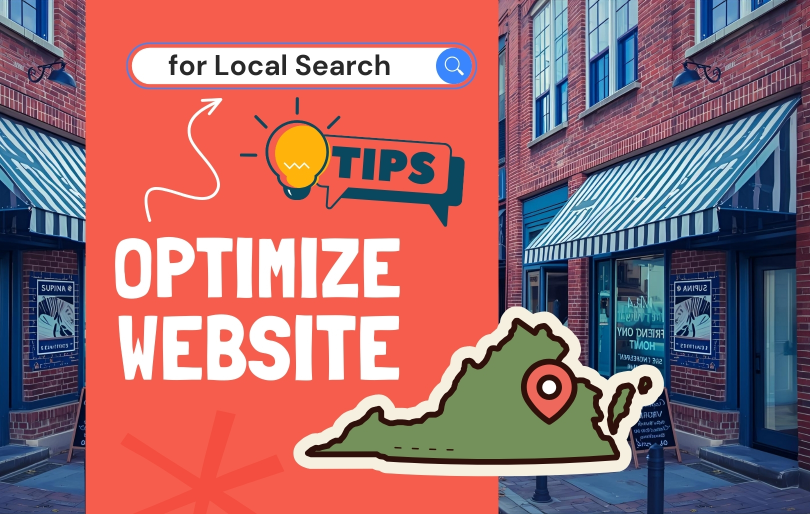Boost Visibility: Proven Tips on How to Optimize Your Website for Local Search
In today’s digital landscape, standing out in local search results can be a game-changer for your business. With more consumers turning to search engines to find nearby products and services, optimizing your website for local search is essential. Whether you run a quaint coffee shop or a bustling service-based business, mastering local SEO can significantly boost your visibility and help you attract more customers.
In this article, we’ll share proven tips that will empower you to enhance your website’s local search performance. From leveraging Google My Business to optimizing your content for local keywords, these actionable strategies will not only enhance your online presence but also connect you with the right audience. Ready to elevate your local visibility and drive more foot traffic to your business? Let’s dive in!
Why Local Search Optimization Matters for Your Business
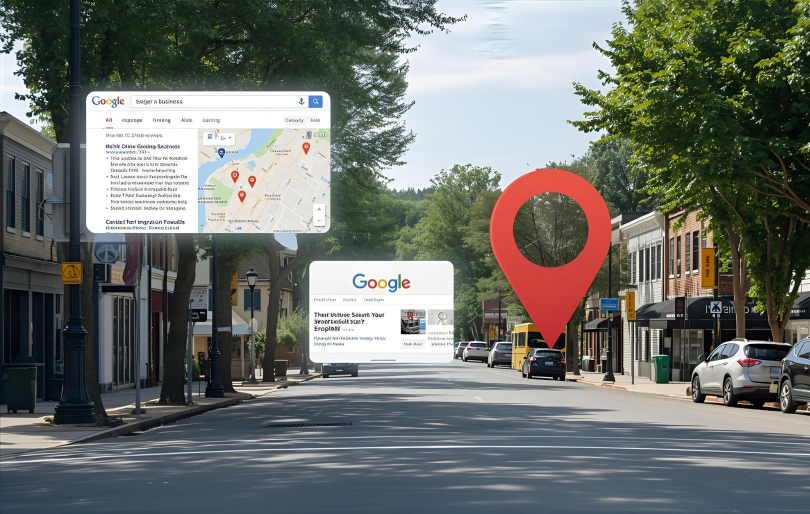
In today’s hyper-connected world, local search optimization is no longer a luxury but a necessity. With more consumers using their smartphones to search for nearby businesses, the importance of appearing in local search results cannot be overstated. According to recent studies, nearly 46% of all Google searches are seeking local information. This means that if your business isn’t optimized for local search, you’re missing out on a significant chunk of potential customers. Local SEO helps ensure that your business appears in relevant searches, thereby increasing your chances of being discovered by local customers.
Moreover, local SEO helps to build a stronger community presence. When your business appears in local search results, it not only attracts more foot traffic but also fosters trust and loyalty among local customers. People tend to trust businesses that appear at the top of local searches because they perceive them to be more credible and reliable. By optimizing your website for local search, you position your business as a leader in your community, which can lead to increased brand recognition and customer loyalty.
Finally, local search optimization can significantly improve your return on investment (ROI). Unlike traditional advertising methods that can be costly and less targeted, local SEO allows you to reach potential customers who are actively searching for the products or services you offer. This means that the traffic you attract through local search is more likely to convert into actual customers, providing a higher ROI. By investing in local SEO, you’re not just enhancing your online visibility; you’re also setting the stage for long-term business growth.
Tips for Optimizing Your Website for Local Search and Outrank Competitors
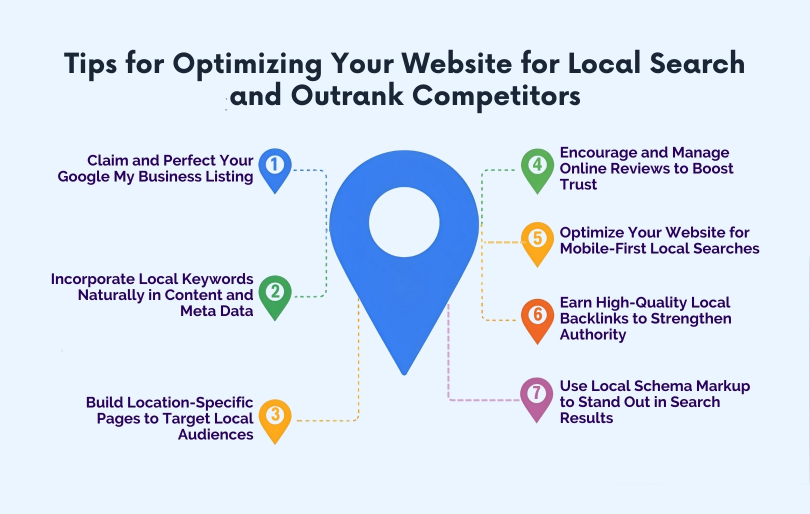
1. Claim and Perfect Your Google My Business Listing
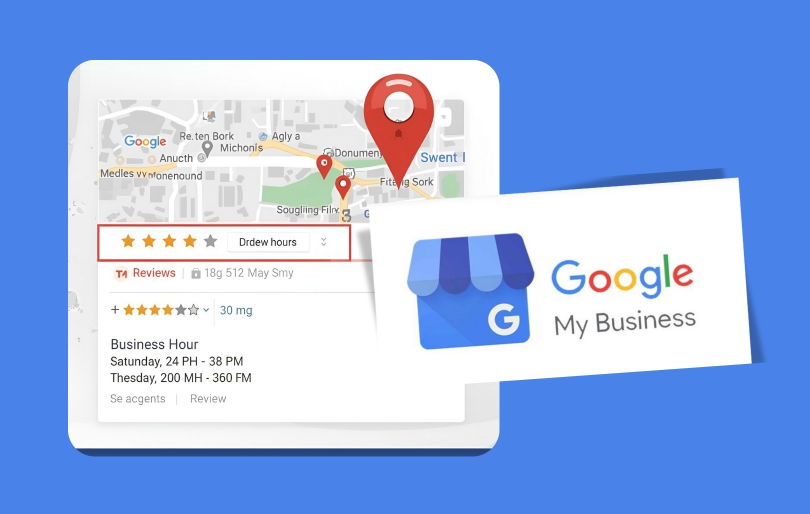
One of the most effective ways to boost your local search visibility is by claiming and optimizing your Google My Business (GMB) listing. One of the most effective ways to boost your local search visibility is by claiming and optimizing your Google My Business listing. It is a free tool that allows you to manage how your business appears on Google Search and Maps. By claiming your GMB listing, you can provide essential information about your business, such as your address, phone number, hours of operation, and website URL. This information is crucial for helping potential customers find and contact you.
To get started, visit the Google My Business website and sign in with your Google account. If you don’t already have a GMB listing, you’ll need to create one by entering your business name and address. Once your listing is created, it’s important to verify it to ensure that your information is accurate and up-to-date. Google will send a verification code to your business address, which you can use to complete the verification process.
After claiming and verifying your GMB listing, it’s time to optimize it to its fullest potential. Start by adding high-quality photos of your business, including images of your storefront, interior, products, and services. These photos can help attract potential customers and give them a better sense of what to expect when they visit your business. Additionally, make sure to fill out all the relevant fields in your GMB profile, including your business category, attributes, and a detailed business description. The more information you provide, the easier it will be for customers to find and choose your business.
2. Incorporate Local Keywords Naturally in Content and Meta Data
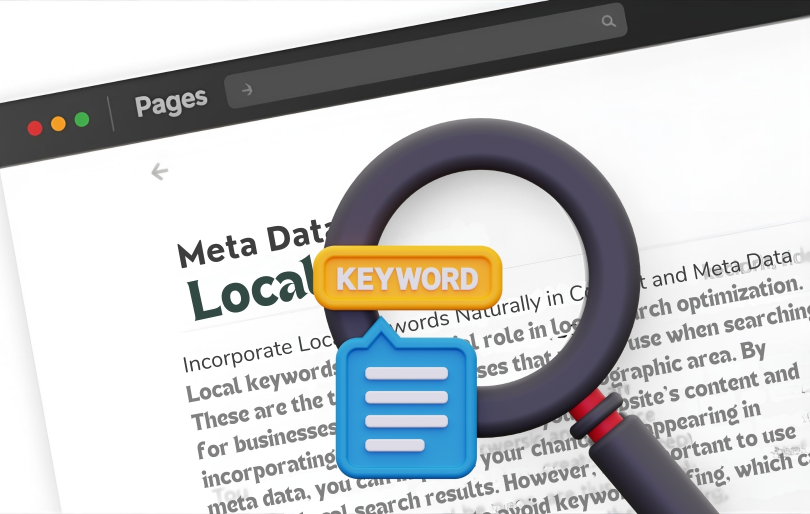
Local keywords play a crucial role in local search optimization. These are the terms and phrases that people use when searching for businesses or services in a specific geographic area. By incorporating local keywords into your website’s content and meta data, you can improve your chances of appearing in relevant local search results. However, it’s important to use these keywords naturally to avoid keyword stuffing, which can negatively impact your search rankings.
Start by conducting keyword research to identify the most relevant local keywords for your business. Tools like Google Keyword Planner, Moz, and SEMrush can help you find popular search terms related to your industry and location. Start by conducting research with tools like best SEO practices for 2025 to identify the most relevant local keywords. Once you have a list of targeted keywords, integrate them into your website’s content, including blog posts, service pages, and product descriptions. Make sure to use the keywords in a way that flows naturally within the content, as this will make it more engaging and readable for your audience.
In addition to incorporating local keywords into your website’s content, it’s also important to include them in your meta data. This includes your title tags, meta descriptions, and header tags. For example, if you run a bakery in Chicago, you might use a title tag like “Best Bakery in Chicago – Delicious Cakes and Pastries.” Similarly, your meta description could highlight your location and offerings, such as “Visit our bakery in Chicago for freshly baked cakes, pastries, and more.” By optimizing your meta data with local keywords, you can improve your website’s visibility in local search results and attract more potential customers.
3. Build Location-Specific Pages to Target Local Audiences
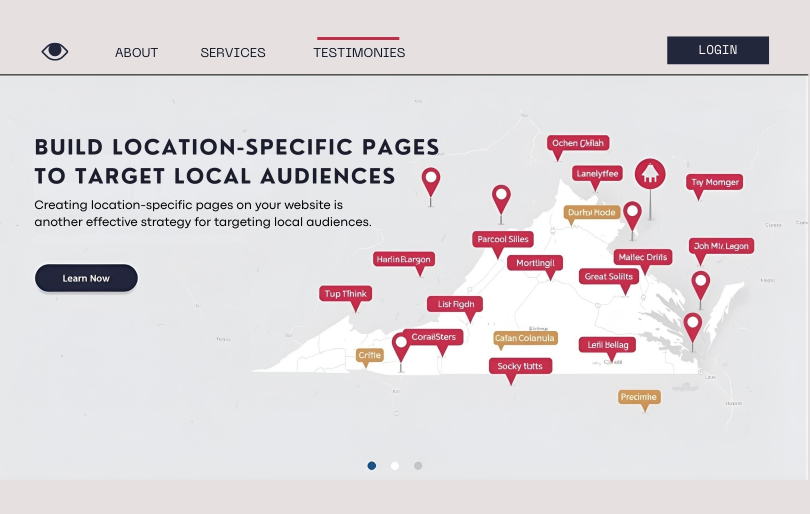
Creating location-specific pages on your website is another effective strategy for targeting local audiences. You can review local SEO strategies for Virginia businesses as an example of tailoring content to a specific region. These pages are dedicated to specific geographic areas where your business operates and can help you rank higher in local search results. By providing detailed information about your services in each location, you can attract more local traffic and improve your chances of converting visitors into customers.
To build location-specific pages, start by identifying the key areas where your business operates. This could include cities, neighborhoods, or regions that are relevant to your target audience. For each location, create a dedicated page that includes relevant information such as your address, phone number, hours of operation, and a description of the services you offer in that area. Make sure to incorporate local keywords naturally throughout the content to improve your search rankings.
Additionally, consider adding location-specific testimonials and case studies to your pages. This can help build trust and credibility with potential customers by showcasing your experience and success in their area. You can also include local landmarks, events, and attractions in your content to make it more relevant and engaging for your audience. By creating comprehensive and informative location-specific pages, you can enhance your local SEO efforts and attract more customers from your target areas.
4. Encourage and Manage Online Reviews to Boost Trust

Online reviews play a significant role in local search optimization and can greatly influence a potential customer’s decision to choose your business. Addressing negative reviews on Google quickly shows your commitment to customers and builds trust. Positive reviews not only improve your online reputation but also boost your search rankings, as search engines consider reviews as a factor in determining the credibility and relevance of your business. Encouraging and managing online reviews is essential for building trust and attracting more local customers.
To encourage online reviews, start by asking your satisfied customers to share their experiences on review platforms like Google, Yelp, and Facebook. You can do this through follow-up emails, in-store signage, or by providing a direct link to your review page on your website. Make sure to make the process as easy as possible for your customers, as this will increase the likelihood of them leaving a review. Additionally, consider offering incentives such as discounts or special offers for customers who leave a review, as this can further motivate them to share their feedback.
Managing online reviews is equally important. Regularly monitor your review platforms to stay informed about what customers are saying about your business. Respond to both positive and negative reviews in a timely and professional manner. For positive reviews, thank the customer for their feedback and express your appreciation for their support. For negative reviews, address the customer’s concerns, apologize if necessary, and offer a solution to resolve the issue. By actively engaging with your customers and addressing their feedback, you can demonstrate your commitment to customer satisfaction and build a stronger online reputation.
5. Optimize Your Website for Mobile-First Local Searches
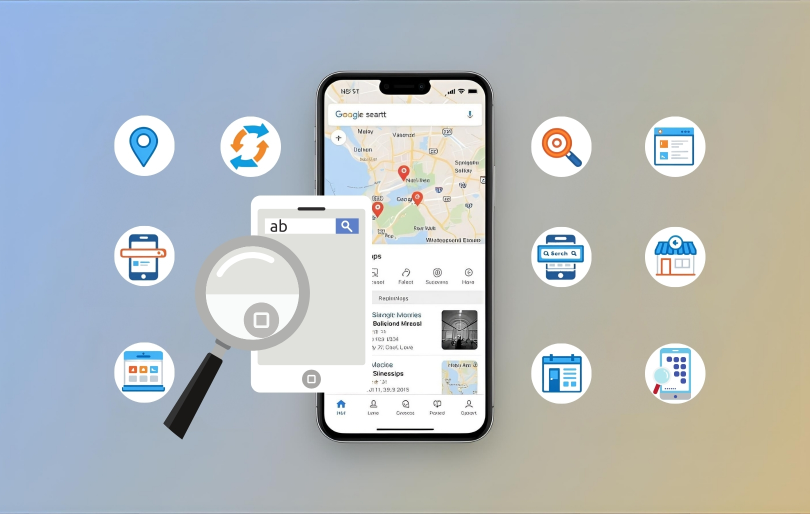
With the increasing use of smartphones, optimizing your website for mobile-first local searches is crucial. Following insights from mobile SEO trends for 2025 will help you adapt your site for mobile-first indexing. Mobile users often search for local businesses while on the go, looking for quick and convenient information. A mobile-friendly website not only enhances the user experience but also improves your search rankings, as search engines prioritize mobile-optimized sites in their results.
To optimize your website for mobile-first local searches, start by ensuring that your site is responsive. A responsive design automatically adjusts the layout and content of your website to fit different screen sizes, providing a seamless experience for users on any device. You can use tools like Google’s Mobile-Friendly Test to check if your website is optimized for mobile and identify any areas that need improvement.
In addition to a responsive design, focus on improving your website’s loading speed. Mobile users expect fast-loading pages, and a slow website can lead to higher bounce rates and lower search rankings. Optimize your images, minimize the use of large files, and leverage browser caching to enhance your site’s performance. Additionally, make sure that your contact information, call-to-action buttons, and navigation menus are easily accessible on mobile devices. By providing a smooth and efficient mobile experience, you can attract more local customers and improve your visibility in local search results.
6. Earn High-Quality Local Backlinks to Strengthen Authority
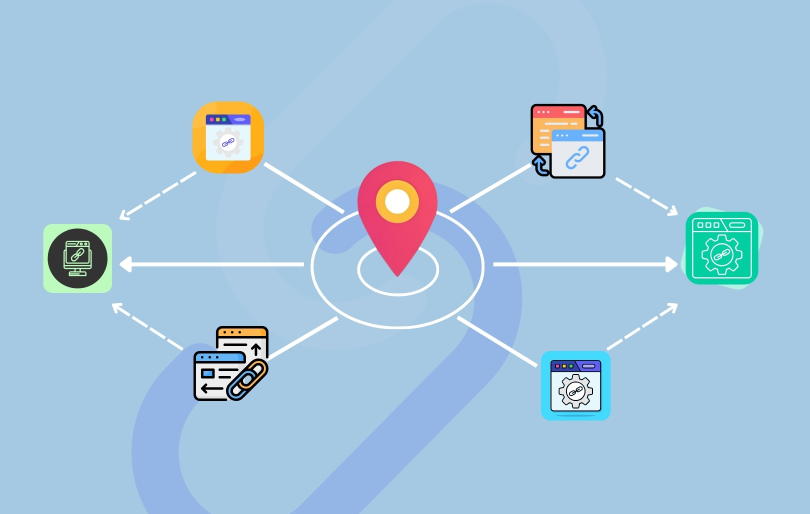
Backlinks are an essential component of any successful SEO strategy, and earning high-quality local backlinks can significantly strengthen your authority in local search results. For effective link building, check out the art of link building for SEO to strengthen your authority. Backlinks are links from other websites that point to your site, and search engines view them as a vote of confidence in your content. The more high-quality backlinks you have, the more credible and authoritative your website appears, which can improve your search rankings and drive more local traffic.
To earn high-quality local backlinks, start by building relationships with other businesses, organizations, and influencers in your community. Reach out to local blogs, news sites, and industry-specific websites to see if they would be interested in featuring your business or collaborating on content. You can offer to write guest posts, provide expert insights, or participate in interviews to earn valuable backlinks. Additionally, consider sponsoring local events, participating in community activities, and joining local business associations to increase your visibility and attract backlinks from reputable sources.
Another effective strategy is to create valuable and shareable content that resonates with your local audience. This could include informative blog posts, how-to guides, infographics, and case studies that address the needs and interests of your community. By producing high-quality content that others find useful and relevant, you increase the likelihood of earning backlinks from local websites and influencers. Remember to promote your content through social media, email marketing, and outreach campaigns to maximize its reach and impact.
7. Use Local Schema Markup to Stand Out in Search Results
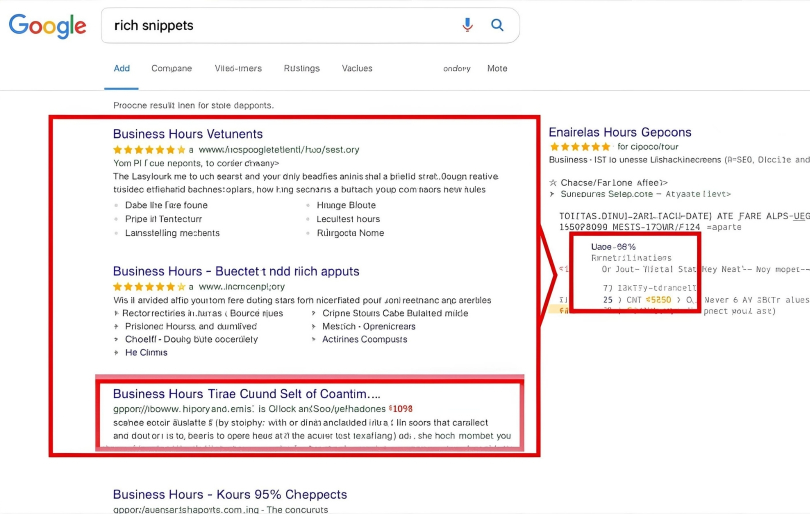
Local schema markup is a powerful tool that can help your business stand out in search results by providing search engines with additional context about your location and offerings. Schema markup is a type of structured data that you can add to your website’s HTML to enhance the way your page appears in search engine results pages (SERPs). By using local schema markup, you can improve your visibility in local searches and increase the likelihood of attracting potential customers.
To implement local schema markup, start by identifying the key information you want to highlight, such as your business name, address, phone number, hours of operation, and services offered. You can use tools like Google’s Structured Data Markup Helper to generate the necessary schema code for your website. Once you have the code, add it to the relevant pages on your site to provide search engines with a clear understanding of your business’s local information.
In addition to basic local information, consider using schema markup to highlight other important aspects of your business, such as customer reviews, events, and special offers. For example, you can use review schema to display star ratings and customer feedback directly in search results, which can increase your click-through rate and attract more potential customers. By leveraging local schema markup, you can enhance your website’s appearance in SERPs, improve your search rankings, and drive more local traffic to your business.
Conclusion and Next Steps for Local SEO Success
Optimizing your website for local search is a critical component of any successful digital marketing strategy. By following the proven tips outlined in this article, you can enhance your local search visibility, attract more customers, and grow your business. From claiming and optimizing your Google My Business listing to incorporating local keywords and building location-specific pages, each step plays a vital role in improving your local SEO performance.
Encouraging and managing online reviews, optimizing your website for mobile-first searches, and earning high-quality local backlinks are also essential strategies for boosting your local search rankings. Additionally, leveraging local schema markup can help you stand out in search results and attract more potential customers. Remember to track your local SEO performance regularly and make data-driven adjustments to continuously improve your strategies.
As you implement these tips, keep in mind that local SEO is an ongoing process that requires consistent effort and attention. Stay informed about the latest trends and best practices in local search optimization, and be proactive in adapting your strategies to meet the evolving needs of your audience. By investing in local SEO, you can build a strong online presence, connect with your community, and achieve long-term business success. If you’re looking for tailored strategies to grow your business locally, claim your free local SEO consultation and let our team guide you step by step.
